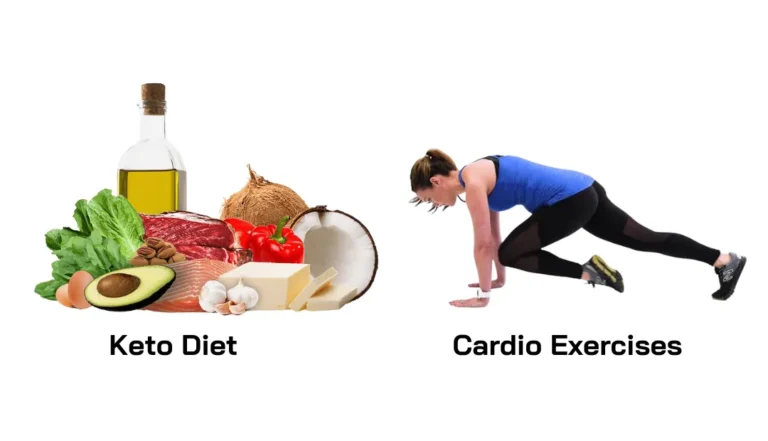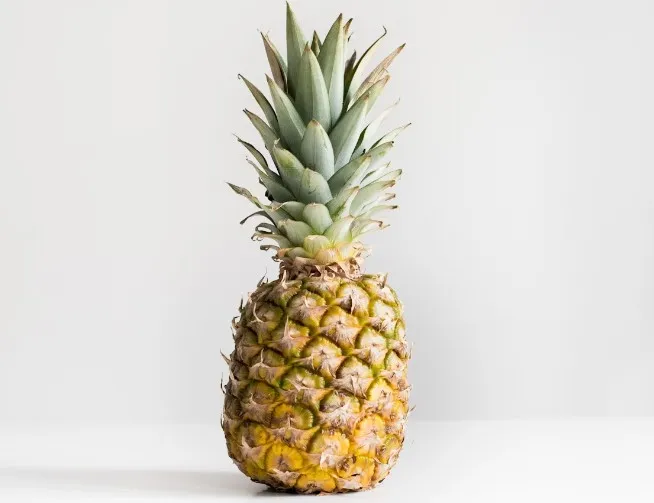Keto Diet For Women Over 60: A Comprehensive Guide to Healthy Weight Management and Lifelong Wellness
The keto diet can be a great option for women over 60 looking to improve their health and wellness. By focusing on low-carb, high-fat foods, you can enhance your energy levels, maintain muscle mass, and support heart health. This dietary approach not only aids in weight management but also helps in regulating blood sugar levels, which is crucial as you age.

Adopting the keto diet requires understanding its principles and making thoughtful choices about the foods you eat. It’s important to consider your nutritional needs and any medical conditions you may have. With proper meal planning and an active lifestyle, you can successfully implement this diet in a way that suits your lifestyle and health goals.
Key Takeaways
- The keto diet is effective for managing weight and improving energy.
- Nutritional choices are vital for successful implementation.
- Combining keto with physical activity enhances overall health.
Understanding the Keto Diet

The Keto diet focuses on changing your body’s primary source of energy from carbohydrates to fats. This shift helps some people achieve their health goals, especially women over 60.
Principles of Ketosis
Ketosis occurs when your body runs low on carbohydrates and starts to break down fats for energy instead. To enter this state, you must reduce carb intake significantly, typically to around 5-10% of your daily calories.
In a standard Keto diet, you consume about 70% fats, 25% protein, and 5% carbs. Healthy fats can come from sources like avocados, olive oil, and nuts. It’s also vital to prioritize adequate protein intake for muscle health.
Monitoring ketone levels can help you know when you’re in ketosis. You might use tests like urine strips, breath analyzers, or blood meters to check your levels. This ensures that your body is utilizing fat effectively.
Benefits of a Keto Lifestyle
Adopting a Keto lifestyle can offer several advantages, particularly for women over 60. One key benefit is potential weight loss. By focusing on fats, your body becomes more efficient at burning stored fat.
In addition, the Keto diet may improve mental clarity. Some studies suggest that using ketones for energy can enhance focus and memory.
Another benefit includes better management of blood sugar levels. This can be essential for those with diabetes or insulin sensitivity.
Lastly, the diet may help with inflammation and joint pain. By reducing carb intake, you may find relief from certain chronic conditions.
Incorporating the Keto diet can lead to various positive health changes.
Nutritional Considerations for Women Over 60

As you consider the keto diet, understanding your nutritional needs is essential. Adjusting your macronutrients and focusing on bone health can greatly impact your success and overall well-being.
Adjusting Macronutrients
On a keto diet, macronutrient ratios are crucial. For women over 60, a typical guideline may suggest 70-80% of your calories come from fats, 10-20% from protein, and 5-10% from carbohydrates.
To find the right balance, consider using a keto calculator. This ensures that you meet your individual needs. Important factors include your activity level and health conditions.
Suggested Macro Ratios:
- Fats: 70-80%
- Protein: 10-20%
- Carbohydrates: 5-10%
Pay special attention to protein. As you age, your muscle mass tends to decrease. Consuming adequate protein helps maintain muscle and overall strength.
Bone Health and Calcium Intake
Maintaining strong bones becomes increasingly vital as you get older. A keto diet can be low in certain calcium-rich foods, so it’s important to find alternatives.
Calcium-Rich Food Options:
- Leafy greens (kale, spinach)
- Cheese (cheddar, mozzarella)
- Fish with bones (sardines, salmon)
Aim for about 1,200 mg of calcium each day. This helps prevent osteoporosis and supports bone density. Vitamin D is another crucial nutrient that aids calcium absorption, so consider foods or supplements that provide this vitamin.
Combining these factors can help maintain your nutritional health on a keto diet as you age. Adjusting your macro intake and ensuring sufficient calcium and vitamin D will benefit your overall well-being.
Implementing Keto Safely
Implementing the keto diet safely is crucial for women over 60. Focusing on health markers, managing electrolytes and hydration, and understanding how menopause impacts your body can lead to a more successful experience.
Monitoring Health Markers
As you start the keto diet, regularly monitor health markers. This includes tracking weight, body measurements, and ketone levels. You may find it helpful to use tools like a blood ketone meter or urine strips.
It’s also wise to note changes in energy levels and mood. Many women report different experiences, so keeping a journal can help identify trends. Regular check-ins with your doctor will ensure that your cholesterol and blood pressure levels remain within a healthy range.
Managing Electrolytes and Hydration
Electrolyte balance is essential on a ketogenic diet. As your body adapts to ketosis, you may lose more fluids and electrolytes. To maintain balance, increase your intake of sodium, potassium, and magnesium.
Consider incorporating foods like avocados, nuts, and leafy greens, which are rich in these nutrients. You can also drink bone broth or add a pinch of salt to your water. Staying hydrated is equally important, so aim for at least eight cups of water daily.
Navigating Menopause and Keto
Menopause can influence how your body responds to the ketogenic diet. Hormonal changes may lead to weight gain or difficulty maintaining energy levels. Pay attention to how you feel during this transition.
You should adjust your carb intake based on your energy needs. Some women find they require a few more carbohydrates during menopause. Listen to your body, and don’t hesitate to consult a healthcare professional for personalized advice.
Meal Planning and Preparation
Proper meal planning is essential for success on the keto diet, especially for women over 60. You need to focus on creating balanced meals that provide the necessary nutrients while keeping carbs low. Here are key tips for effective meal preparation.
Creating Balanced Keto Meals
To create balanced keto meals, aim for a mix of protein, healthy fats, and low-carb vegetables. Focus on:
- Protein Sources: Incorporate chicken, fish, eggs, and legumes. These foods promote muscle health.
- Healthy Fats: Use olive oil, coconut oil, avocados, and nuts. These help keep you feeling full.
- Low-Carb Vegetables: Include leafy greens, bell peppers, and broccoli. These add fibers and vitamins without many carbs.
Plan your meals in advance to avoid last-minute choices that might lead to higher carb intake. Using a meal planner can help you visualize your meals for the week. Many online resources provide keto meal plans specifically designed for older adults.
Easy and Nutritious Recipes
Quick and nutritious recipes can make your keto journey easier. Here are a few ideas:
- Avocado Egg Salad: Mash avocados with hard-boiled eggs, add a dash of lemon juice, and season with salt and pepper.
- Zucchini Noodles with Pesto: Spiralize zucchini and toss with homemade or store-bought pesto for a quick meal loaded with flavor.
- Chicken Stir-Fry: Sauté chicken breast with broccoli, bell peppers, and your choice of seasonings for a satisfying dish.
Look for five-day meal plans that have easy-to-follow recipes and shopping lists for convenience. Many resources offer variety, helping you stay below 20 grams of net carbs daily, which supports your keto goals.
Physical Activity and Keto
Incorporating physical activity into your keto journey can enhance your results. Exercise helps boost your metabolism and improves overall health. Knowing the right types of exercise and how to stay active while following the keto diet can lead to better outcomes.
Exercise Recommendations
For women over 60, a mix of aerobic, strength, and flexibility exercises is beneficial. Aim for at least 150 minutes of moderate aerobic activity each week. This can include brisk walking, cycling, or swimming.
Strength training is crucial. Try to include weight-bearing exercises at least twice a week. Focus on major muscle groups, which helps increase muscle mass and burn more calories.
Flexibility exercises, like yoga or stretching, can improve balance and reduce the risk of injury. Start with gentle activities and gradually increase intensity based on your comfort level.
Staying Active with Keto
Combining your keto diet with physical activity can lead to better energy levels. Many women find that using fat for fuel improves their performance during exercise.
To stay active, set realistic goals that fit your lifestyle. Consider joining a group or class. This provides both motivation and social interaction.
Incorporate daily activities into your routine. Simple changes, like taking the stairs or walking during breaks, can make a big difference.
Always listen to your body. If you feel fatigue or discomfort, take a break. Adjust your workout and nutrition as needed, ensuring your approach supports your overall well-being.
FAQS About Keto Diet for Women Over 60
Navigating the keto diet as a woman over 60 comes with unique considerations. Understanding dietary needs, potential effects on health, and ideal food choices can help you achieve better results.
What are the specific dietary considerations for women over 60 on a keto diet?
You need to focus on protein intake, which is vital for preserving muscle mass. Aim for a balanced ratio of fats and proteins while keeping carbohydrates low. Hydration is also essential, as older adults may have different fluid needs.
How might a keto diet affect postmenopausal women?
After menopause, hormonal changes can lead to weight gain and decreased metabolism. The keto diet may help stabilize blood sugar and reduce cravings, which can be beneficial for managing weight. However, it is important to monitor how your body responds to changes in diet.
Are there any risks involved with seniors following a keto diet?
Some risks include nutrient deficiencies, constipation from low fiber intake, and increased cholesterol levels. It’s crucial to consult a healthcare provider before starting the diet to ensure it suits your health status and to minimize these risks.
Can a ketogenic diet help with weight loss in women over the age of 60?
Yes, many women over 60 find that a keto diet can assist with weight loss. By reducing carbohydrate intake, your body may enter a state of ketosis, which promotes fat burning. Staying consistent with meal planning and monitoring your progress is vital.
What types of foods should be included in a keto meal plan for women over 60?
Focus on healthy fats like olive oil, avocado, and nuts. Incorporate low-carb vegetables such as leafy greens and broccoli. High-quality protein sources like fish, poultry, and eggs are also important to maintain muscle mass.
How does the keto diet impact menopause-related belly fat?
The keto diet may aid in reducing belly fat by improving insulin sensitivity and lowering sugar levels. Reduced carbohydrate intake can also help manage hormonal fluctuations that contribute to weight gain during menopause. Monitoring your body’s responses can help adjust your meal plan accordingly.






